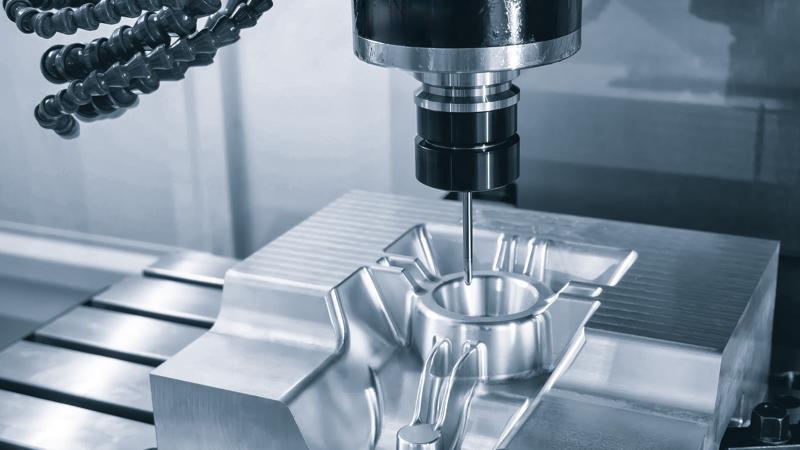CNC Milling: Precision and Efficiency in Modern Manufacturing
Explore CNC milling, a key manufacturing process offering precision and efficiency.
CNC (Computer Numerical Control) milling is a process used in manufacturing that involves the use of computerized controls to operate and manipulate multi-point cutting tools. This technology is crucial in producing precise and complex parts from various materials like metal, plastic, wood, and composites. CNC milling offers both precision and efficiency, making it a cornerstone in industries like aerospace, automotive, and electronics.
What is CNC Milling?
CNC milling is a machining process where a milling machine removes material from a workpiece using rotary cutters. The machine operates based on programmed commands, which guide the cutting tool along multiple axes to create the desired shape. Modern CNC milling machines can work with a high degree of accuracy, often within a fraction of a millimeter, allowing for complex geometries and detailed finishes.

Types of CNC Milling Machines
There are several types of CNC milling machines, each suited for different applications. Vertical milling machines have the spindle positioned vertically, while horizontal milling machines have it horizontally. The choice between the two depends on the workpiece and the required operation. Multi-axis milling machines, such as 3-axis, 4-axis, and 5-axis machines, offer more flexibility and precision, as they allow for the movement of the cutting tool in multiple directions.
Benefits of CNC Milling
- High Precision: CNC milling provides unparalleled precision in creating intricate and complex parts with tight tolerances.
- Efficiency: The automation in CNC milling significantly reduces production time, leading to faster turnaround for large and small projects.
- Versatility: CNC milling can be used on a variety of materials, including metals, plastics, and even wood, making it adaptable for different industries.
- Cost-Effectiveness: Though the initial setup can be expensive, CNC milling reduces waste and the need for manual labor, making it cost-effective in the long run.
Applications of CNC Milling
CNC milling is widely used in industries requiring precision, such as aerospace for producing turbine blades and structural components. In the automotive industry, it is used to create engine parts and body panels. Additionally, it’s vital in the medical field for manufacturing surgical instruments and prosthetics, as well as in electronics for producing circuit boards and casings.
Cost and Top CNC Milling Services/Companies
The cost of CNC milling services can vary based on factors like material, complexity of the design, and the number of units produced. Generally, basic CNC milling services can start around $75 per hour, while more complex and high-precision tasks can range between $100 and $200 per hour. For purchasing CNC milling machines, the prices range from $10,000 to over $100,000, depending on the machine’s capabilities. Some of the top CNC milling service providers include Xometry, Protolabs, and Fictiv, all of which offer high-quality CNC machining services and online quoting systems.











